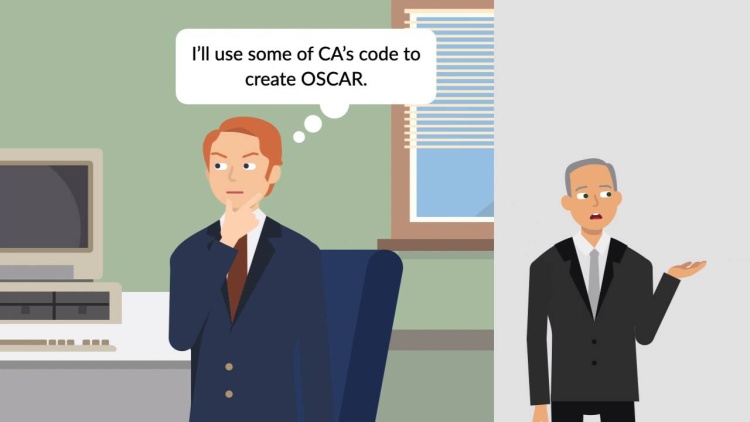Computer Associates International v. Altai, Inc.
United States Court of Appeals for the Second Circuit
982 F.2d 693 (1992)

- Written by Sean Carroll, JD
Facts
Computer Associates International (CA) (plaintiff) created a computer scheduling program called CA-SCHEDULER. Part of CA-SCHEDULER was the ADAPTER, which was able to translate the language of the program into the languages of various computer operating systems (e.g., DOS, VSE, MVS) so that CA-SCHEDULER could run on all operating systems. Altai, Inc. (Altai) (defendant) manufactured its own computer scheduling program called ZEKE that ran only on the VSE operating system. Altai hired Claude Arney, a former CA employee, to create a version of ZEKE that was compatible with the MVS operating system. Altai did not know it at the time, but Arney was “intimately familiar” with CA’s ADAPTER. Arney created a similar translator for Altai, called OSCAR 3.4, that was approximately 30% copied from ADAPTER. CA filed a copyright infringement suit against Altai, at which point, Altai decided to remake OSCAR to remove all aspects of ADAPTER. Altai created OSCAR 3.5 without the help of Arney or anyone familiar with ADAPTER. The United States District Court for the Eastern District of New York (District Court) found that OSCAR 3.4 infringed on CA’s copyright, but that OSCAR 3.5 did not. CA appealed only with respect to the District Court’s finding on OSCAR 3.5.
Rule of Law
Issue
Holding and Reasoning (Walker, J.)
What to do next…
Here's why 904,000 law students have relied on our case briefs:
- Written by law professors and practitioners, not other law students. 47,100 briefs, keyed to 995 casebooks. Top-notch customer support.
- The right amount of information, includes the facts, issues, rule of law, holding and reasoning, and any concurrences and dissents.
- Access in your classes, works on your mobile and tablet. Massive library of related video lessons and high quality multiple-choice questions.
- Easy to use, uniform format for every case brief. Written in plain English, not in legalese. Our briefs summarize and simplify; they don’t just repeat the court’s language.





